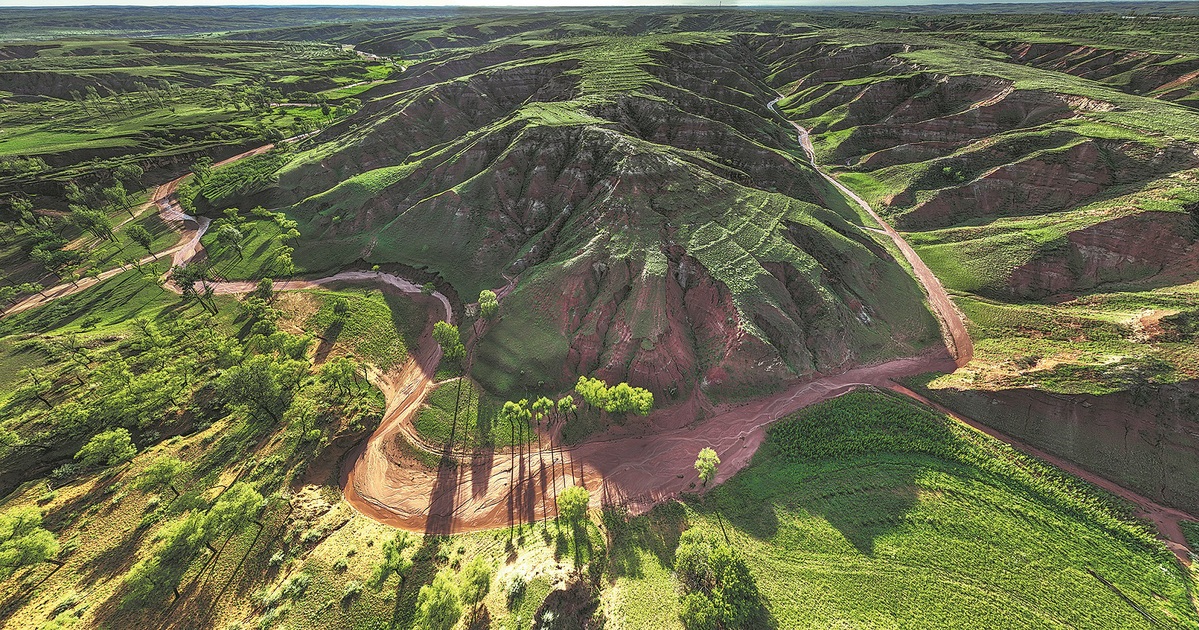
Striped Pisha sandstone is prevalent in Juungar Banner. CHEN WENJUN/FOR CHINA DAILY
Editor's note: China Daily is publishing a series illustrating the country's efforts to achieve its carbon peak and carbon neutrality goals.
Due to the unyielding erosion caused by wind and rain, Hua Shengming's reminiscences of his home village Deshengyouliang, in Inner Mongolia autonomous region's Juungar Banner, portray a stark tableau of his formative years.
Yellow sand often danced in the spring air, and red mud flowed frequently during the summer rain.
The landscape was devoid of greenery, the 55-year-old said.
In the vicinity of the village, most land is covered by Pisha sandstone, with only a few trees and sporadic patches of weeds, creating a scene of desolation, according to the man of the Mongolian ethnic group. Less than 10 percent of the land in Deshengyouliang has a thick topsoil layer.
"No matter what we planted, we could hardly harvest anything," he said, adding his family seldom made more than 10,000 yuan ($1,360) a year around the turn of the millennium.
Today, standing amid lush apple trees, however, his joy goes beyond words. The flying yellow sand and flowing red mud are a thing of the past. His 9-hectare orchard now makes his family an annual income of over 1 million yuan.
This transformation has occurred as a result of a comprehensive set of initiatives implemented by the local authorities. These measures involved treating the Pisha sandstone to mitigate water loss and soil erosion, while also integrating industrial development into the remediation efforts.
The Pisha sandstone, a unique soft rock formation found in the semiarid regions along the upper and middle reaches of the Yellow River and the Loess Plateau, undergoes significant erosion from wind and rainfall.
The area characterized by Pisha sandstone is often termed "the most extreme case of water loss and soil erosion globally", earning the ominous moniker of "earth cancer" from local residents and experts both domestically and internationally.
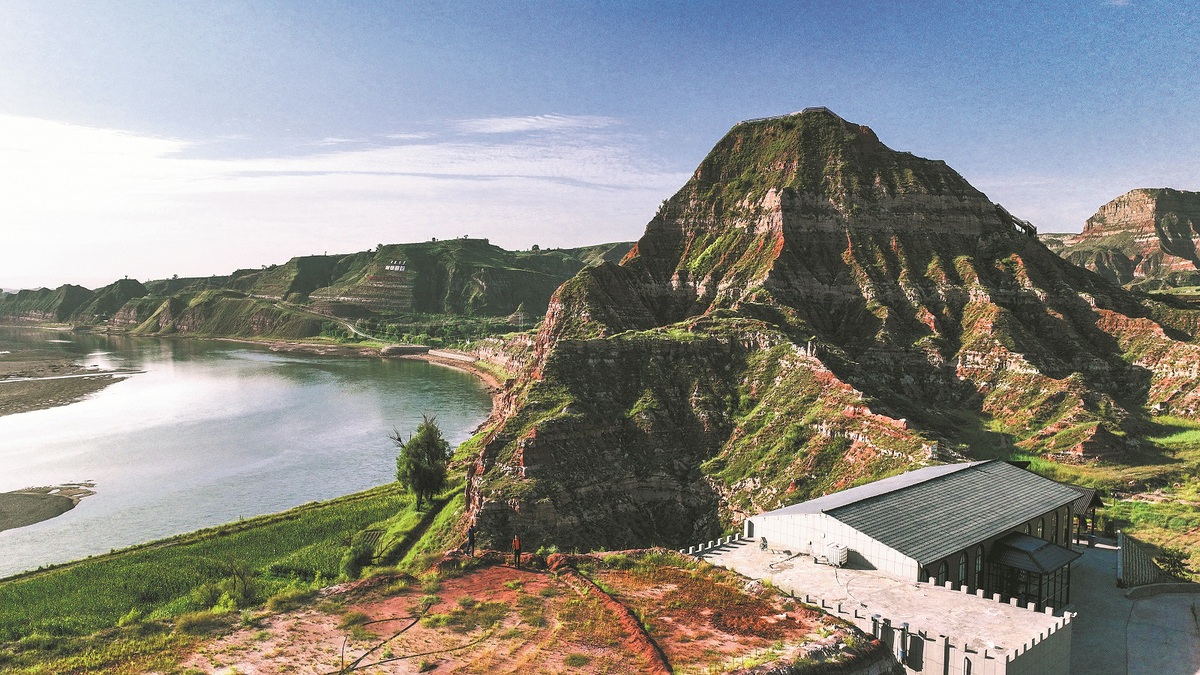
The Pisha sandstone in Juungar Banner, Inner Mongolia autonomous region, forms striped brown-gray strata, and is prone to soil erosion. CHEN WENJUN/FOR CHINA DAILY
Yu Quangang, chief engineer for the management commission of the upper and middle reaches of the Yellow River, told China Central Television that locals detest such erosion hazards so much that they liken the sandstone to arsenic, giving its name Pisha. Pi is an old name for arsenic in Chinese.
It's estimated that 76.9 percent of the 7,550 square kilometers of land under Juungar's jurisdiction is covered by the soft rock, plaguing the banner with water loss and soil erosion.
The innovative approach of integrating apple tree cultivation with Pisha sandstone treatment was discovered serendipitously, according to Hua.
In 1994, a villager named Wang Zaida planted an apple seedling in a sheltered, sunlit mountain cove in Deshengyouliang. Against the odds, the apple tree thrived, prompting him to expand his planting to 0.4 hectares in 2006, which yielded remarkable success.
Many villagers were astonished when Wang generated 300,000 yuan from his orchard in 2013, a success that promptly inspired other villagers to venture into the business, with Hua being one of them.
Pisha sandstone appears to be solid, but upon contact with water, it quickly loosens, rendering it vulnerable to erosion on slopes. When exposed to heavy rainfall, the soft rock easily transforms into a mudflow, Hua said.
He explained that the villagers began by creating terraced farmland to plant apple trees. They meticulously leveled their land before blending local loess and manure into the terraced surfaces. Despite the challenging terrain, the apple trees thrived in this mixture, aided by the underlying Pisha sandstone which effectively prevented water infiltration.
As local authorities strive to treat Pisha sandstone to curb water loss and soil erosion, more villagers have planted apple trees under the support of the local government.
Apple orchards in Deshengyouliang now cover more than 150 hectares, said Wang Meng, deputy head of the government of Nuanshui township, where Deshengyouliang is located.
Each year, about 160 metric tons of apples can be yielded in the village, bringing villagers more than 20 million yuan in income, he added.
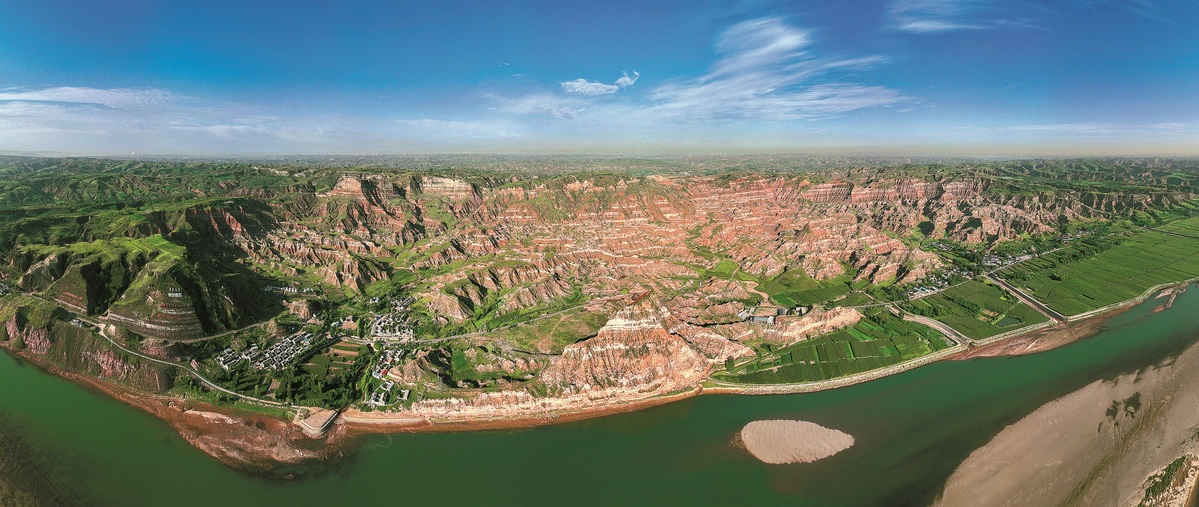
The Pisha sandstone in Juungar Banner, Inner Mongolia autonomous region, forms striped brown-gray strata, and is prone to soil erosion. CHEN WENJUN/FOR CHINA DAILY
"Aside from bringing villagers income, apple trees have played an effective role in conserving water and soil, preventing a large amount of sediment from flowing away," he said.
The total area of apple trees planted for Pisha sandstone treatment in Juungar has reached about 2,000 hectares, according to the local government. Siberian apricot and sea buckthorn have also been planted in the banner to help treat the soft rock, with 60,000 hectares and 62,000 hectares planted, respectively.
Another measure that has been promoted in the banner to prevent water loss and soil erosion is to build check dams. As a result, Juungar has been able to treat about 62 percent of its Pisha sandstone.
Li Zonghui, who runs two heating-supply companies in Dalad Banner, also in Inner Mongolia, used to purchase apples from Luochuan, a major apple-producing county in Shaanxi province, as holiday gifts for his employees.
After hearing from his friends about the high-quality apples produced in Deshengyouliang, the 58-year-old chose to buy 500,000 yuan of them from the village this year.
"They are juicy and sweet, with a delightful taste," he said.
The businessman said he intends to launch a new venture in the village by building a refrigerated storage facility. This will enable him to store apples upon their harvest and sell them during the Spring Festival holiday, which this year runs from Jan 28 to Feb 4, when apple prices are significantly higher.
Hua has witnessed significant environmental and economic changes in his village, once considered one of the most impoverished areas in Juungar.
"Many villagers who moved to urban areas have chosen to come back... Because of apples, the village is getting richer and richer," he said.

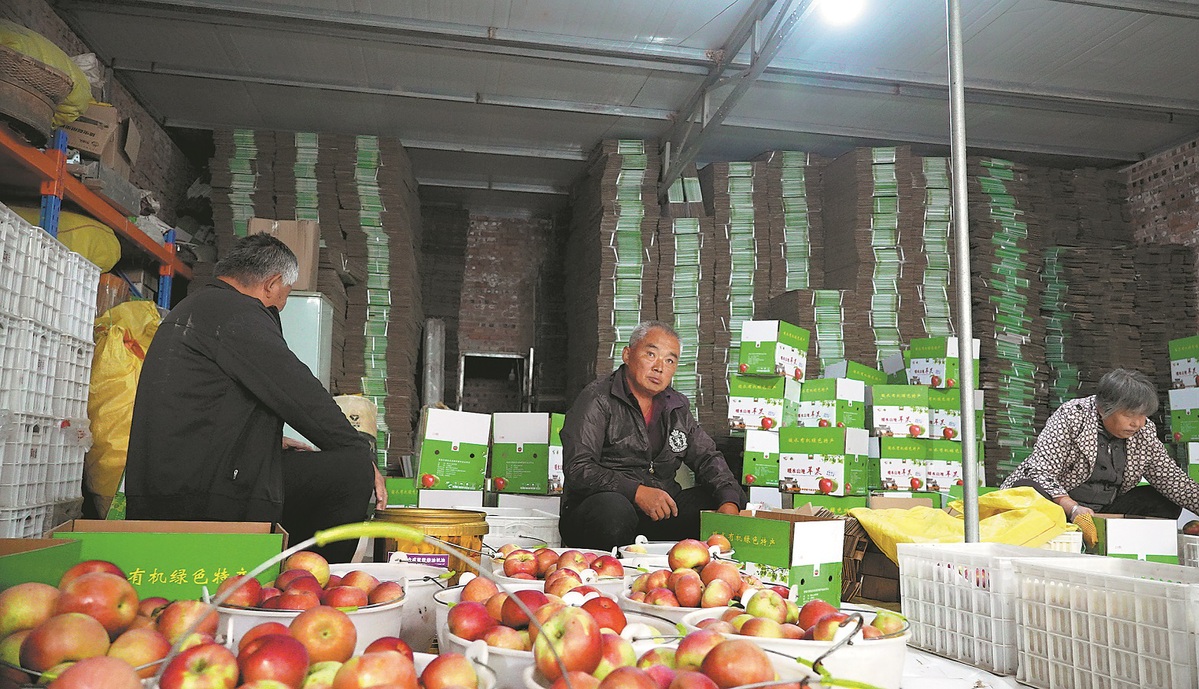
Farmers box apples in Deshengyouliang village. [Photo provided to China Daily]
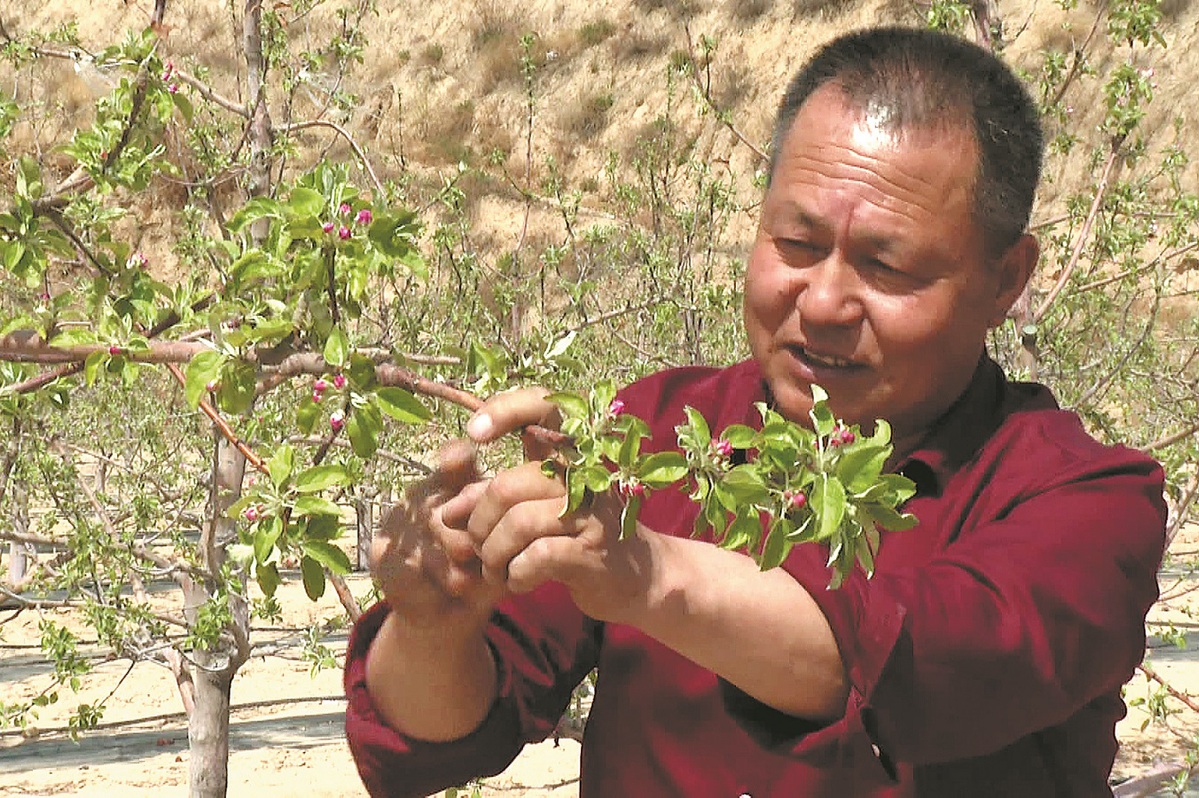
Hua Shengming, a farmer in Deshengyouliang village of Juungar, Inner Mongolia, checks apple branches at his orchard. CUI KAI/XINHUA